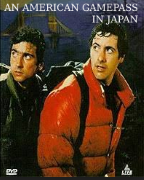|
seems to me issues with To-Hit arise because D&D is trying to do too much with only a single stat (AC) while certain elements (offensive magic) work on entirely separate systems completely divorced from melee combat maths
|
|
|
|

|
| # ? Apr 19, 2024 23:09 |
|
Barudak posted:Yeah in the initial version of that post I had a similar thing; I don't know where that trade off point is but my gut says it hovers at around +d8 or so damage (assuming a baseline of the aforementioned d10+5). The problem is you shouldn't do that because you've then knowingly introduced unbalanced mechanics to combat a problem which only exists because a core mechanic isn't providing the correct amount of fun. Sure, I'm not talking about the best way to improve D&D. I was just addressing that the bonus-to-hit/bonus-damage tradeoff could still be balanced with D&D's current rates of success if one were to correctly appreciate what one gives up by missing. My point is that they've failed on multiple levels, both the basic game design issue of how often people boringly fail, and then also failing to provide options that are interesting given that previous (bad) decision.
|
|
|
|
Barudak posted:Completely agreed. Not really in 4e they are rolling attack rolls just like everyone else?
|
|
|
|
treeboy posted:seems to me issues with To-Hit arise because D&D is trying to do too much with only a single stat (AC) while certain elements (offensive magic) work on entirely separate systems completely divorced from melee combat maths Don't forget fun things like how many spells work on a single successful roll while attacks are dependent often on two or three. For instance the wizards basic attack is just a flat out hit and deals damage. 1 good roll means you deal middling damage from range. 1 bad roll means you deal poor damage from range. The fighters basic attack requires two rolls. One bad roll to start and he gets nothing. One good roll and one bad roll means he deals poor to middling damage from up in an opponents face. Only on two good rolls does he do his job. Now that is literally "the thing the fighter is designed to do well" versus "the thing the wizard is designed to be bad at." If we discuss the two of the characters rolling needs for Save or Dies its pathetic with only one roll made by the Wizards opponent and 3 for the fighter if he even has that option. socialsecurity posted:Not really in 4e they are rolling attack rolls just like everyone else? 4e is dead and Next has killed it. Also, the magic missile used above still counts because Grogs bitched so hard about Magic Missile not being an auto hit Wizards published an errata to change it back. Sir Kodiak posted:Sure, I'm not talking about the best way to improve D&D. I was just addressing that the bonus-to-hit/bonus-damage tradeoff could still be balanced with D&D's current rates of success if one were to correctly appreciate what one gives up by missing. My point is that they've failed on multiple levels, both the basic game design issue of how often people boringly fail, and then also failing to provide options that are interesting given that previous (bad) decision. Oh, agreed most heartily. Barudak fucked around with this message at 19:59 on Jan 14, 2014 |
|
|
|
I'm curious if the Wizard issue could be solved from the opposite direction: all armor types provide either moderate magic DR across the full spectrum, or higher specialized DR for certain types of magic damage.
|
|
|
|
Barudak posted:
MadScientistWorking fucked around with this message at 20:15 on Jan 14, 2014 |
|
|
|
I think the issue actually goes a bit past +1 accuracy vs +1 damage, or even the ability to do +1d6 damage once an encounter. What I love about magic items tends to be their ability to help with puzzle solving and so on. Combat usually is relatively self-sufficient in most D&D editions--even if weapons give you new combat actions, those actions tend to resemble ones you can already do. I think that utility abilities tend to be way more interesting. It's really the exploration part of D&D that benefits the most from supernatural utility abilities. Giving the players access to a bunch of weird ways to mess with reality (ideally even ones that don't immediately have obviously uses) goes a long way to making 'puzzle'*-solving way more fun. The ability to do +1d6 on an attack once a day doesn't really massively change the flow of combat (especially if you already have 8 other similar abilities), but a Bag of Holding opens up the possibility of the party enacting all sorts of new harebrained schemes they wouldn't have been capable of before. Also, I'm not a fan of having too many passive bonuses in the game. Utility items can easily just sit in your inventory until they're needed, but having to remember 6 different situational +1 bonuses you can have to accuracy/damage/initiative/etc just bogs everything down. *With the understanding that puzzles are open-ended dangerous/resource-draining situations that can be way less dangerous if handled well, not that they're 'solve me to progress' riddles or whatever.
|
|
|
|
treeboy posted:I'm curious if the Wizard issue could be solved from the opposite direction: all armor types provide either moderate magic DR across the full spectrum, or higher specialized DR for certain types of magic damage. You could, and a lot of heartbreakers pursue that route. My personal issue with it is its bolting on even more parallel mechanics to try to fix the issue of the Wizard and requires additional rules and two different types of check by the DM. Assuming Save or Dies still exist you have that whole can of worms still there where you have to have a mechanic which can balance a chance of infinite damage versus garaunteed damage. In all likelihood (and often what I've seen in games that take this approach) you end up with even more cumbersome mechanics and/or still end up with a wizard who won't use half the spell types available.
|
|
|
|
Barudak posted:You could, and a lot of heartbreakers pursue that route. My personal issue with it is its bolting on even more parallel mechanics to try to fix the issue of the Wizard and requires additional rules and two different types of check by the DM. Assuming Save or Dies still exist you have that whole can of worms still there where you have to have a mechanic which can balance a chance of infinite damage versus garaunteed damage. I like the idea of "magic does area damage (instead of Does Everything), weapons don't" combined with armor being damage reduction to everything. Have all attacks (weapons or spells) target something akin to NADs.
|
|
|
|
I've actually found the D&D Next magic item tables very useful! ...for making magic items in Dungeon World. "Fiendish icon loud songcraft" and "element(water) ornament strange material frail" gave rise to these things.
|
|
|
|
OtspIII posted:I think the issue actually goes a bit past +1 accuracy vs +1 damage, or even the ability to do +1d6 damage once an encounter. What I love about magic items tends to be their ability to help with puzzle solving and so on. Combat usually is relatively self-sufficient in most D&D editions--even if weapons give you new combat actions, those actions tend to resemble ones you can already do. I think that utility abilities tend to be way more interesting. However, utility items tend to have limited interaction with the actual mechanics of the game; combat items can be more readily defined, and act as specific tools that players can use to achieve their goals within the rules of the game. Utility items rely more on freeform roleplaying and DM fiat to determine what they actually do. Which is OK, but that means they serve different purposes. Personally, I have a low tolerance for DM fiat. It's fine for the "tell a collaborative story" aspect of RPGs, but the game part of RPGs is important to me, and something that doesn't interact with the game mechanics itself is ultimately not that exciting to me. I'd rather use tools with well-defined mechanics to solve problems, not ask the DM if I can do something that solves the problem. For a game like D&D, where combat is 95% of the gameplay, and where treasure is intended to be significant part of the experience, I don't think utility items cut it. There needs to be combat stuff, or else magic items are just fluff. But, certainly, utility effects should not be having opportunity costs with combat effects. I think one solution is to make sure each item has a well defined combat use, plus a looser, narrative, utility effect. The two could even be matched up randomly, which is actually kind of along the lines of what Next was doing in the playtest.
|
|
|
|
eth0.n posted:For a game like D&D, where combat is 95% of the gameplay, and where treasure is intended to be significant part of the experience, I don't think utility items cut it. There needs to be combat stuff, or else magic items are just fluff. Seeing stuff like this hurts me (err, like, because I used to play that way a bunch and I hated it and I just assumed I hated D&D until I found other ways to play it, not because you're doing it wrong). Even in an edition like 4e where combat is meant to be the main focus, the game turns into a horrible slog for me if it's not a decent mix of tactical combat, exploration-style combat solving, and negotiations/socializing. In something like 4e the mix might feel best for me at like 50%/25%/25%, but anything past that and the game starts to feel stale. I also don't especially get the whole "I'd rather use tools with well-defined mechanics to solve problems, not ask the DM if I can do something that solves the problem." bit--that just starts to feel like a giant math problem to me, which I get plenty of in combat already.
|
|
|
|
OtspIII posted:Seeing stuff like this hurts me (err, like, because I used to play that way a bunch and I hated it and I just assumed I hated D&D until I found other ways to play it, not because you're doing it wrong). Even in an edition like 4e where combat is meant to be the main focus, the game turns into a horrible slog for me if it's not a decent mix of tactical combat, exploration-style combat solving, and negotiations/socializing. In something like 4e the mix might feel best for me at like 50%/25%/25%, but anything past that and the game starts to feel stale. When I say "95% of the gameplay", I don't necessarily mean 95% of the total experience of play, but that almost all of the actual game mechanics provided by the designers are about combat. A lot of the experience of playing RPGs isn't about game mechanics. Negotiations/socializing has very little mechanical support in 4E (and most RPGs, for that matter), but that doesn't mean a given table shouldn't do it as a significant part of their sessions. When I ran 4E, it was generally about 2/3 combat, 1/3 mostly-freeform roleplay with occasional skill rolls. quote:I also don't especially get the whole "I'd rather use tools with well-defined mechanics to solve problems, not ask the DM if I can do something that solves the problem." bit--that just starts to feel like a giant math problem to me, which I get plenty of in combat already. Well, part of it is that I greatly enjoy games on the level of them being optimization problems that I do my best to solve. I think most gamers, to at least some degree, enjoy games on this basis. I think RPGs operate on two basic levels: there's the fun of collaboratively telling a good story, and there's the fun of accomplishing something by overcoming challenges. If my character defeats an enemy by using a bag of holding to throw a 500 lbs stone at his head (i.e., the stone's in the bag, I throw the bag, but have it tied to me so the stone emerges at the same speed when the bag stops), that might make for a fun story, but the only "accomplishment" was convincing my DM that the fantasy physics should work that way, and getting them to go along with my scheme. And that "accomplishment" is not especially meaningful to me; not in the way that using combat mechanics intelligently and effectively to accomplish the same thing is. That doesn't mean narratively focused items are bad, but rather that unless you have heavy narrative mechanics (which isn't what D&D is about), they basically exist outside the game proper. If D&D doesn't have combat items, and just has utility items, then D&D is not really a game about magic item treasure. It's a game where part of the suggested supporting fluff includes magic items.
|
|
|
|
eth0.n posted:I think RPGs operate on two basic levels: there's the fun of collaboratively telling a good story, and there's the fun of accomplishing something by overcoming challenges. If my character defeats an enemy by using a bag of holding to throw a 500 lbs stone at his head (i.e., the stone's in the bag, I throw the bag, but have it tied to me so the stone emerges at the same speed when the bag stops), that might make for a fun story, but the only "accomplishment" was convincing my DM that the fantasy physics should work that way, and getting them to go along with my scheme. And that "accomplishment" is not especially meaningful to me; not in the way that using combat mechanics intelligently and effectively to accomplish the same thing is. You're suggesting that using non-mechanics to solve problems is akin to cheating; that it involves manipulating your GM into 'allowing' your victory with a wave of his hand, that it isn't a real accomplishment. It also kinda sounds like you're suggesting that using non-mechanical solutions isn't intelligent in some fashion because it doesn't interact with the mechanics. No game (except maybe GURPs) attempts to interface a mechanical UI for every possible scenario. There just isn't really any good way to have mechanics that are that exhaustive without writing so much that it becomes cumbersome to use. I've always imagined that combat mechanics (in D&D, in particular) are a mini-game meant to be entertaining and create tension or payoff in the same way that an action scene in a movie is meant to connect joining story scenes with something fun to watch. Using the mechanics to build a super awesome character who has the highest number of Awesome Points in the greatest possible number of scenarios is a math answer to a hypothetical problem the DM might pose to the group. But the funny thing is that the scenarios the DM crafts are also arbitrary and can be crafted around thwarting a particular character just as much as waving his hand to thwart or reward that character. Frost cheese full blade? I'll just make an ice monster that takes half damage from edged weapons! Completely arbitrary. I suppose to the gamist my hypothetical situation is still better because at least the DM has to go through the motions of thwarting you, but puzzle-fights don't often have a strictly mechanical answer, either. The entire experience of roleplaying is based on an arbitrary factor, the DM, so I'm not sure why it's okay when it's what monsters you fight or what treasures you get or how much damage the lava does but when it's whether or not some rocks do damage to a guy it's not. Mendrian fucked around with this message at 01:36 on Jan 15, 2014 |
|
|
|
currently cooking: Buffalo Chicken in the slow cooker, going to make some Buffalo Chicken sandwiches. If it is Good I will post the Recipe (it is a very lazy one)
|
|
|
|
Mendrian posted:Frost cheese full blade? I'll just make an ice monster that takes half damage from edged weapons! Completely arbitrary. This is why you have monsters provided as part of the game and rules for building combat scenarios. You just make it a game where the GM is expected to sometimes target specific players, and to sometimes gear combats to where the party is weak, and the mechanics are strong enough to handle that. Sure, if one of the players is granted the authority to make up new things, and then does a lovely job of it, that breaks the game. That would break every game ever made. Sir Kodiak fucked around with this message at 01:53 on Jan 15, 2014 |
|
|
|
The real tragedy of boring +1 swords is that WotC already fixed this problem in the latest edition of Gamma World. Magic items were weird and did all kinds of things, even if they were straight up murder devices. Hell, there was even intricacy in your basic get-this-poo poo-for-free weapons with how they handled ammo usage.
|
|
|
|
Sir Kodiak posted:This is why you have monsters provided as part of the game and rules for building combat scenarios. You just make it a game where the GM is expected to sometimes target specific players, and to sometimes gear combats to where the party is weak, and the mechanics are strong enough to handle that. Sure, if one of the players is granted the authority to make up new things, and then does a lovely job of it, that breaks the game. That would break every game ever made. This is part of why I like having stables of multiple characters in games and try to avoid mandatory scenarios with time limits--one way to get around the 'GM scenario design is arbitrary, since they know exactly what the skill levels of the PCs are' problem is to have it so that the team shows up with different party compositions for different missions. Also, by letting them be able to run and regroup before coming back it lets them do recon work and either actually bring the team best suited for the problems at hand or say 'gently caress it, we'll come back when we're stronger'. I really like letting the game auto-balance itself to some degree by letting the players choose their fights--in a system where the player can always regroup and come back better prepared/higher level/with more consumables/whatever it suddenly becomes desirable that some fights will be above their weight class and the need for an accurate CR system gets deemphasized. Sadly, this is only really compatible with a few different styles of play (dungeon crawling being the obvious one), but it's effective in situations where it applies.
|
|
|
|
Mendrian posted:You're suggesting that using non-mechanics to solve problems is akin to cheating; that it involves manipulating your GM into 'allowing' your victory with a wave of his hand, that it isn't a real accomplishment. It also kinda sounds like you're suggesting that using non-mechanical solutions isn't intelligent in some fashion because it doesn't interact with the mechanics. Not at all. Using non-mechanics to solve problems is storytelling, and that's an essential part of the RPG experience that certainly has all sorts of skill demands of its own, intellectual and otherwise, and my intent is not to belittle it in any way. A smart, well-thought out plan, that doesn't rely at all on mechanics, is still awesome, because it's an awesome story. But the point is that it's not gameplay, and thus is largely independent of what we're talking about here: game design. Especially in a style of game not focused on explicit narrative mechanics. My point is that if you've got a goal of designing a game that is in any significant part about finding treasure, where that treasure includes useful magical items, and where combat is the overwhelmingly primary gameplay, then giving up on combat magic items is essentially giving up on that goal. Sure, you could have fluffy narrative magic items in the book, but that wouldn't make it any more a game about magic items, than putting a bunch of fluff write ups about kings and their courts would make D&D a game about courtly intrigue. A game certainly doesn't need to be about treasure and magic items, but I think D&D ought to continue to be in a significant way, if at all possible. I think there's a design space here worth exploring, even if the past attempts have been flawed in a variety of ways. quote:Using the mechanics to build a super awesome character who has the highest number of Awesome Points in the greatest possible number of scenarios is a math answer to a hypothetical problem the DM might pose to the group. But the funny thing is that the scenarios the DM crafts are also arbitrary and can be crafted around thwarting a particular character just as much as waving his hand to thwart or reward that character. Frost cheese full blade? I'll just make an ice monster that takes half damage from edged weapons! Completely arbitrary. Sure, and in fact I dislike elemental vulnerabilities/resistances and other similar mechanics like favored enemy for exactly this reason. They tend to leave the efficacy of mechanics to the whims of the GM, more so than other mechanics. But, yes, there will always be some of that, because the GM occupies contradictory roles as content designer, and playing adversaries within that content. But at least with D&D combat, given a situation, it can be played out entirely with mechanics, and no GM fiat. And even if there's some GM fiat (say, damage from lava or falling rocks), that doesn't mean it's totally not a game at all. There are shades of grey to all things. But utility items in D&D are essentially entirely reliant GM fiat.
|
|
|
|
People still take GNS seriously? But the Buffalo Chicken thing (further above) sounds hella tasty. Bleu Cheese is awesome for buffalo chicken, burgers, wings, etc.
|
|
|
|
Don't cook Buffalo Chicken. We need him to make more conversions for the 40K thread.
|
|
|
|
eth0.n posted:But utility items in D&D are essentially entirely reliant GM fiat. Depends on what you mean by a utility item, of course. A ring of feather fall has rigorously-defined mechanics and essentially provides immunity to a particular type of damage. A bottle of air is about the part of the game where people talk about the story. Error 404 posted:People still take GNS seriously? From a certain perspective, it's a misidentification of the sort of "social gameplay" of the building-consensus part of the game as non-gameplay. But that's just a terminology issue. At least in my experience, there's a meaningful distinction in many games, particularly things like 4e, between the part of the game where players' primary contributions are narrative descriptions with periodic skill checks to decide between disputes or to create tension and the part of the game where players' primary contributions are the selection of highly-defined combat abilities. The latter portion is where most of the mechanical attention is paid. If you're going to do that, there's value in making it somewhat of an objective test of skill in the manner a boardgame can be. If you want it to be driven by the conversation between players, something more like Dungeon World makes a lot more sense, which is never what D&D has tried to be. PeterWeller posted:Don't cook Buffalo Chicken. Don't cook chicken in the slow-cooker. It doesn't have the structure to benefit from the long cooking times the device is for.
|
|
|
|
eth0.n posted:Using non-mechanics to solve problems is storytelling, and that's an essential part of the RPG experience that certainly has all sorts of skill demands of its own, intellectual and otherwise, and my intent is not to belittle it in any way. A smart, well-thought out plan, that doesn't rely at all on mechanics, is still awesome, because it's an awesome story. It's not really storytelling, though, is it? I'd say that using an illusion of the party to lure the dragon away from its lair in order to loot its treasure is still closer to problem-solving than it is to story-telling. The way I see it, the distinction is more in the motivations of the players than the interactions with hard mechanics--problem-solving is where you have a situation that you want to succeed at and the possibility of failing at it, while story-telling is where you have an interesting situation and the way in which the situation plays out (for better or worse) tells you something about the characters involved. RPGs are pretty much always going to be doing both at the same time, and choosing to poke the idol with a 10 foot pole as opposed to just grabbing it off the pedestal certainly does tell you something about the character who did so, but how to deal with an obviously trapped item is very much a game-challenge. The thing is, there are a ton of soft mechanics at work in every game that don't involve dice in the least. Encounter design, level design, knowing what sort of force to send when the cops get called in Shadowrun, building the central sin in a town in DitV--these are all absolutely pieces of game design. . .they're just usually not laid out as explicit mathmatical mechanical formula (although good games do give guidelines and examples so that GMs don't have to figure them out completely by trial and error and common sense). Even the basic setting of a game, like the fact that being discovered as a Solar in Exalted means that you'll be hunted down, contains implicit game systems that a ST running the game will be expected to follow. Err, think of it this way--a RPG rule book contains a bunch of information in it. Some of it is hard mathy mechanics. Some of it is setting and GM-advice. Changing any part of it will change the way that people, in practice, play the game. Anything that impacts the way that actual play gets realized is a form of game design--up to and including things like artwork (which works to inform expected tone/etc, if nothing else). eth0.n posted:But, yes, there will always be some of that, because the GM occupies contradictory roles as content designer, and playing adversaries within that content. But at least with D&D combat, given a situation, it can be played out entirely with mechanics, and no GM fiat. And even if there's some GM fiat (say, damage from lava or falling rocks), that doesn't mean it's totally not a game at all. There are shades of grey to all things. But utility items in D&D are essentially entirely reliant GM fiat. GM fiat is pretty much never just GM fiat, though. There's always an element of table-wide agreement as to whether something working makes sense or not. It should pretty much never just be a matter of the GM deciding if this it the time they feel like taking pity on you or not, and there are plenty of gameplay techniques that can be used to keep that from ever needing to happen.
|
|
|
|
Error 404 posted:People still take GNS seriously? GNS theory is a categorization of game designs into three types, as well as a claim that "pure" designs are best. None of that has anything at all to do with what I'm talking about. OtspIII posted:It's not really storytelling, though, is it? I'd say that using an illusion of the party to lure the dragon away from its lair in order to loot its treasure is still closer to problem-solving than it is to story-telling. The players are creating a story about a group of people problem solving. The players themselves aren't truly problem solving because the "acceptability" of their solution is judged by the GM, or by their own consensus. Any solution can succeed or fail if the GM (or player consensus) wants it to. With mechanics, problems can actually be solved, or not solved, by the players, because the acceptability of the solution is determined by the outcomes prescribed by the mechanics. quote:Err, think of it this way--a RPG rule book contains a bunch of information in it. Some of it is hard mathy mechanics. Some of it is setting and GM-advice. Changing any part of it will change the way that people, in practice, play the game. Anything that impacts the way that actual play gets realized is a form of game design--up to and including things like artwork (which works to inform expected tone/etc, if nothing else). First off, sure, lots of mechanics aren't numerical. But they are always mathematical at a basic level, though, because "a game" is a mathematical construct defined by a set of rules. But I don't agree that all those things are "game design" specifically. I think there's a clear distinction between mechanics, and the rest of the package that comprises a published RPG. Just because something influences how someone plays the game doesn't mean it's a mechanic. Mechanics are rules, not just advice or inspiration. And I'm not saying that the non-mechanical elements don't matter, or that they aren't "design" of their own sort. It's just that they don't define what a game supports the way mechanics do, and that's ultimately RPG game design is all about : providing mechanical tools to support various kinds of stories and roleplaying. To illustrate, non-mechanical magic items are generally easy to port between games. It's really easy for a GM to put an "Immovable Rod" in a game that doesn't already have it in its published books. There's very little about a game that makes such an item "supported" or not. This isn't true of, say, 4E's Horned Helm. It's defined by what it does in a particular game. What it does could certainly serve as inspiration for making an item in another game, but doing so would very likely mean designing new mechanics, rebalancing for a new context. In short, redoing all the actually hard parts of game design. quote:GM fiat is pretty much never just GM fiat, though. There's always an element of table-wide agreement as to whether something working makes sense or not. It should pretty much never just be a matter of the GM deciding if this it the time they feel like taking pity on you or not, and there are plenty of gameplay techniques that can be used to keep that from ever needing to happen. OK, but whether it's GM fiat, or player consensus, it doesn't really make a difference in regards to what I'm talking about. And yes, there are gameplay techniques to keep that from ever needing to happen. They're mechanics. eth0.n fucked around with this message at 06:28 on Jan 15, 2014 |
|
|
|
eth0.n posted:The players themselves aren't truly problem solving because the "acceptability" of their solution is judged by the GM, or by their own consensus. Any solution can succeed or fail if the GM (or player consensus) wants it to. "Wants it to" feels like a bit of a weird way to read this, though. The primary desire is to be fair and to adjudicate things in a way that make sense. I just don't see how using group consensus as to if something makes sense or not is fundamentally less game-like of a resolution mechanic than using a RNG. eth0.n posted:First off, sure, lots of mechanics aren't numerical. But they are always mathematical at a basic level, though, because "a game" is a mathematical construct defined by a set of rules. Is Apples to Apples not a game, then? It uses rules to decide how many cards people get and how to win, but its core mechanic actually is a matter of personal taste--something that even most RPG Fiat-style mechanics actively try to avoid being. eth0.n posted:But I don't agree that all those things are "game design" specifically. I think there's a clear distinction between mechanics, and the rest of the package that comprises a published RPG. Just because something influences how someone plays the game doesn't mean it's a mechanic. Mechanics are rules, not just advice or inspiration. I feel like this is a discussion where terminology is going to get dangerously stretched if we're not careful (I'm probably the one being most guilty of this, too). Maybe we should make a distinction between mechanics and systems? To me, a system is a set of rules that dictate what happens in play. Games, in the end, boil down to systems. The mechanics written on the page feed into the system, but so do the genre conventions and setting descriptions and all those other things I'm talking about. They might not be system themselves, but they have a direct impact on the system that is created to run play. Game design is all about creating those systems as a whole--it's as much about regulating the perceptions of the players and making sure they're experiencing the game in the manner you're hoping for as it is about making sure the mechanics are tight. Games are illusions that only actually exist in the heads of the people playing them--trying to strip them down to purely being math clashing against math strips away half of what's fun about even non-RPG games. And here's the simplest form of one of those anti-fiat systems I was talking about--instead of just saying 'you succeed or fail' the GM sets the odds of success and tells the player to roll a dice. If the die rolls high enough it works, and if it doesn't it fails. That's kind of a mechanic (it uses numbers), but it's also heavily reliant on fiat to decide on what those numbers are. How would you classify something like that?
|
|
|
|
eth0.n posted:My point is that if you've got a goal of designing a game that is in any significant part about finding treasure, where that treasure includes useful magical items, and where combat is the overwhelmingly primary gameplay, then giving up on combat magic items is essentially giving up on that goal. Sure, you could have fluffy narrative magic items in the book, but that wouldn't make it any more a game about magic items, than putting a bunch of fluff write ups about kings and their courts would make D&D a game about courtly intrigue. Then you occasionally hand out the wonderous items on top of that. Splicer fucked around with this message at 14:19 on Jan 15, 2014 |
|
|
|
Splicer posted:Take away the +X enchantments and these go from "I can throw my hammer once per encounter? That's it? I'd like a holy avenger please." to "You mean I can cold-cock bad guys from halfway across the map? SIGN ME THE gently caress UP."
|
|
|
|
honestly reading through the playtest rare magic items most of them are cool enough without their static bonuses. The Staff of Charming and Staff of Striking are notable in this regard. Vorpal sword as well is an excellent example of something that would be a really neat magic item that doesn't need its static bonus (or could remain a max of +1 instead of +3 when Attuned)
|
|
|
|
Payndz posted:I'd never thought of treating magic items this way before, but I'm totally stealing the idea for my next heartbreaker. Goodbye piddly-poo poo bonuses, hello FLAMING EARTHQUAKE HAMMER OF SMITING! once per encounter
|
|
|
|
To me, one of the strangest things about 4E is that the designers went out of their way to give drat near every +X item some other power or ability. There's tons and tons and tons of varied and unusual weapons and armors hiding in the Compendium. But a constant criticism I see about 4E (even from 4E fans) is that the magic items are "boring". Weird.
|
|
|
|
TheAwfulWaffle posted:To me, one of the strangest things about 4E is that the designers went out of their way to give drat near every +X item some other power or ability. There's tons and tons and tons of varied and unusual weapons and armors hiding in the Compendium. But a constant criticism I see about 4E (even from 4E fans) is that the magic items are "boring". Weird. They're boring, to me at least, because its very easy to quantify what is an optimal item and what is a trash item. Unfortunately all the trash items are the cool ones and all the optimal ones are "deal more damage and hit more often. When you do thing you always can do, deal even more." Now having to chose between having an item which lets you once per encounter teleport between marked foes and an item that lets you leap 5 squares becomes a real conundrum. It also leads to being able to design way more interesting encounters at the upper echelon because bosses don't have to be meat-bags and can have gimmicks that require unique gear setups.
|
|
|
|
That's because a lot of those varied abilities are some variation of "gain +NUMBER when CONDITION" or "get TEMPORARY BONUS to VALUE." Compared to the number of items that, like, store the souls of slain enemies for you to consume later or let you pickpocket someone by stabbing them, the number of items that have abilities which are things like "gain +2 to defense versus opportunity attacks for a turn" or "perform some minor combat maneuver" are by far the majority. Like, my 4E Monk character makes good use out of Boots of the Fencing Master. You know what those do? You get +1 to AC and Reflex for a turn every time you shift, which works great with Monks because they get tons of shifts so it's like having extra defense all the time. They also have a special ability though...once per encounter, as a minor action, you can...drumroll please...shift 2 squares. And that's useful and all, having a minor action shift has helped me out in numerous fights, but it's not exactly the awe-inspiring stuff of legend, y'know? Way, way more 4E items are on that side of the scale, special abilities and all. The boots are useful, but they aren't exciting. Exciting was when I leveled up and gained a new ability that lets me teleport my speed, taser-punch someone, and both launch them backwards and slap a to-hit penalty on them.
|
|
|
|
Another reason is that "Whenever you score a critical hit with this weapon it bursts into flames, dealing an additional 2d6 fire damage" looks more impressive than "on critical: +2d6 fire". But that's the reason for half the criticism that 4E gets.
|
|
|
|
Splicer posted:Then you occasionally hand out the wonderous items on top of that. Oh, sure, I agree there's all sorts of mechanical design space without static bonuses. My point is just that it's important to have mechanically well-defined combat items in D&D (whatever they might be), and that narrative items aren't a suitable replacement. One thing I'll note on this, though: 4E already solved the problem of enhancement bonus vs interesting effects. You're not choosing between +6 and an effect. You're choosing between effects on items that upgrade to the next enhancement bonus early in the 5-level cycle, vs items that upgrade late in the cycle. I haven't found that to be significant pressure on avoiding certain effects. What's more of an issue is when interesting (but ultimately not that mechanically useful) effects like "become a swarm of rats" conflict with "+1d6 on a charge". OtspIII posted:"Wants it to" feels like a bit of a weird way to read this, though. The primary desire is to be fair and to adjudicate things in a way that make sense. I just don't see how using group consensus as to if something makes sense or not is fundamentally less game-like of a resolution mechanic than using a RNG. But what does "be fair" and "make sense" mean in the absence of mechanics? What basis is there to make those determinations? Is it "realism"? Sure, that can work in some cases, but once you get into fantasy, with extraordinary and magical characters, adversaries, and situations, that breaks down. No, what actually works, and what I think is what intuitively feels "right" to most people (even if they're not explicitly aware of it), is to adjudicate on the basis of story: what happens is what makes for the best story. In a lot of cases, this can look a lot like realism, because realism often makes for more compelling stories by making them relatable, but it also scales up to the fantastic and foreign. So now we're back to non-mechanical problem-solving being storytelling. As a group, you're deciding what makes for the best story about people problem solving, not actually solving problems. quote:Is Apples to Apples not a game, then? It uses rules to decide how many cards people get and how to win, but its core mechanic actually is a matter of personal taste--something that even most RPG Fiat-style mechanics actively try to avoid being. The mechanics have purpose by giving structure to encourage creativity. It's not "storytelling" per se, but it's in a similar vein. The same can apply to RPGs as well. Narrative-focused RPGs are more about providing frameworks to facilitate creative storytelling, than they are about providing strong problem-solving gameplay. But D&D isn't a narrative-focused RPG. quote:To me, a system is a set of rules that dictate what happens in play. Games, in the end, boil down to systems. The mechanics written on the page feed into the system, but so do the genre conventions and setting descriptions and all those other things I'm talking about. They might not be system themselves, but they have a direct impact on the system that is created to run play. Game design is all about creating those systems as a whole--it's as much about regulating the perceptions of the players and making sure they're experiencing the game in the manner you're hoping for as it is about making sure the mechanics are tight. I've been trying to drive a distinction between "game" in the sense of a well-defined mathematical construct of rules, and "game" in the sense of something you buy off a shelf. "System" is a good term for the former. RPG game design is about providing tools to the GM to facilitate their own design process of the game they'll run at their table. And what ultimately defines a published game is its system. Not because non-system-elements don't matter, but because the system is the part that's really hard for a GM to come up with on their own, and because it's an integrated machine whose parts often aren't easily interchangeable. Whereas advice and narrative ideas are readily adaptable by GMs across published games. GMs are well equipped to decide what sort of story they want to facilitate at their table. If a game claims to be about searching dungeons for magical treasure, but the system has nothing to do with that because the magic items are all just ideas for non-mechanical narrative items, then that claim is bullshit. The game isn't offering significant tools to facilitate magical treasure hunting that haven't been published a hundred times already in a multitude of other places, including for free (the d20 SRD is great for mining ideas, just not mechanics). Similarly, listing a bunch of NPC writeups wouldn't make D&D a game about social interaction. It's relatively easy to find good ideas for NPCs. It's hard to come up with a system that supports social interaction well. quote:Games are illusions that only actually exist in the heads of the people playing them--trying to strip them down to purely being math clashing against math strips away half of what's fun about even non-RPG games. But games aren't illusions. At least, not entirely. A game system is a mathematical construct. And math is real; in some ways, more real than what we think of as reality. Playing a game system well is, in effect, solving a mathematical problem. And while that might not have as much actual meaning as proving Fermat's Last Theorem, it's still something with a real basis. Likewise, stories are real, in a similar sense. They can be communicated to others, understood, and judged on their merits. The "rules" of narrative aren't as hard and fast as mathematics, but they still exist, and are generally understood by people on an intuitive level. Even in non-RPG games, there's an element of narrative that people enjoy. That's the point of having themes for board games. There is an element of "illusion" involved in making a math problem fun even to people who don't think of math as being fun. And there's "illusion" when a person feels so immersed in a story that they feel like they are actually there. Those are things that exist solely in an individual's heads, and can't truly be communicated or understood by others. But being a good system designer means that you have to see through the illusions, and understand what's actually going on; however, caring about games-as-math as a designer doesn't mean you should be producing a game that's just dry math. And likewise, a GM shouldn't necessarily always be couching what's going on in terms of it being a story, where things happen because of story-logic (even if that is what's actually going on). Facilitating the "illusory" parts is still important. But the problem with being an illusionist is you can't afford to believe your own illusions. quote:And here's the simplest form of one of those anti-fiat systems I was talking about--instead of just saying 'you succeed or fail' the GM sets the odds of success and tells the player to roll a dice. If the die rolls high enough it works, and if it doesn't it fails. That's kind of a mechanic (it uses numbers), but it's also heavily reliant on fiat to decide on what those numbers are. How would you classify something like that? It's a mechanic, but it's largely a meaningless one. It provides little value as a tool to the GM, since they have to make all the important decisions themselves. This is why I say D&D is 95% combat gameplay, even though non-combat probably takes up more than 5% of the rules; its because the skill system is largely meaningless given the arbitrary DCs involved. eth0.n fucked around with this message at 16:52 on Jan 15, 2014 |
|
|
|
TheAwfulWaffle posted:To me, one of the strangest things about 4E is that the designers went out of their way to give drat near every +X item some other power or ability. There's tons and tons and tons of varied and unusual weapons and armors hiding in the Compendium. But a constant criticism I see about 4E (even from 4E fans) is that the magic items are "boring". Weird. 1) (debateably a bad thing) This +X per tier is built into the math. You NEED to keep upgrading your items at predictable intervals to keep up. For some people this takes away some of the, heh, "magic" 2) (unforgivable) When they started writing the "and also a thing" section they made a whole bunch of them that were just different variants on "and also add a bunch of damage to all your attacks", meaning you still have to choose between dragging people around the battlefield with your magic arrows and just getting another flat +x damage, completely defeating the purpose of standardising these things in the first place. Splicer fucked around with this message at 17:12 on Jan 15, 2014 |
|
|
|
eth0.n posted:RPG game design is about providing tools to the GM to facilitate their own design process of the game they'll run at their table. And what ultimately defines a published game is its system. Not because non-system-elements don't matter, but because the system is the part that's really hard for a GM to come up with on their own, and because it's an integrated machine whose parts often aren't easily interchangeable. Right. One of the things that gets brought up when people talk about a system facilitating balanced combat is that the GM can always undo that by purposefully building monsters or encounters that exploit PC weaknesses or undo what makes them strong or useful. But the system providing tools to build a balanced encounter isn't there to restrain a bad GM, it's there for the good GM who wants help in knowing what constitutes a reasonable challenge. The specific situation can (and probably should) always tip the balance somewhat one way or another, but having some idea of "these seven monsters would be difficult but beatable when fighting a typical level 10 party in a 100' by 100' arena" is a great starting point that not every system provides. And that's something that the GM doesn't really need when it comes to building interesting NPCs for a palace intrigue plot. "If both the vizier and count are duplicitous, a level 6 party is unlikely to be able to succeed," is something you'd only need if you had a complex system for social interaction where duplicitousness has rigorous mechanical meaning, which has never been what D&D is about. Sir Kodiak fucked around with this message at 17:34 on Jan 15, 2014 |
|
|
|
Splicer posted:When they started writing the "and also a thing" section they made a whole bunch of them that were just different variants on "and also add a bunch of damage to all your attacks", meaning you still have to choose between dragging people around the battlefield with your magic arrows and just getting another flat +x damage, completely defeating the purpose of standardising these things in the first place. Part of that is a problem with Roles, I think. When one role is "striker", then it makes sense to have a set of items that do more damage in various ways. After all, leader get buff/heal items, right? It's dumb, but it's done the same way D&D has always been done, with categories defining other categories and symmetry being important even when it's not a good idea (alignment, planes, spell schools, etc all suffer from the same sort of thing).
|
|
|
|
If your talking specifically about 4E(and this probably more or less applies to any edition as well), you can just make it so every magic item has 2 things, the "useful thing" (hit more, damage more or whatever) and then the "fun" thing (pickpocket one per encounter). I guess it arguably makes the characters slightly stronger, but since no rogue wants gloves that "lets them pickpocket once per encounter" but every rogue wants gloves that "Adds cha score to sneak attack" may as well make the gloves you give them do both so they get both the fun thing and the useful thing, otherwise you will never see the "fun" thing, I don't know that it would change encounter balance all that much.
|
|
|
|
goldjas posted:If your talking specifically about 4E(and this probably more or less applies to any edition as well), you can just make it so every magic item has 2 things, the "useful thing" (hit more, damage more or whatever) and then the "fun" thing (pickpocket one per encounter). Thats the current stop-gap solution. It still doesn't work in 4e because not all abilities go with the optimal damage outputs per level so you're back to ignoring them. It also makes you have to juggle multiple balls and give up cool powers when you get that pieces of equipment with bigger numbers. A better solution is just don't offer the damage increasing items at all. Fix the math in the classes and their abilities and have items provide interesting bonuses.
|
|
|
|

|
| # ? Apr 19, 2024 23:09 |
|
The problem is that 4e magic items make the attack/damage/crit/NADs/AC bonus a part of the assumed math for encounter-building and such, thus making it all just contrived numbers bloat. Situational "jump through this hoop to get damage bonus" items are bullshit too, because you end up finding ways to always be jumping through the hoop, or at least as much as possible. No, don't give people the "fun" +MATHS and interesting effects like pickpocket. Just the latter. Edit: on that note, how the gently caress does MM3 give monsters ~8 HP per level? Or to put it another way, where are the PCs' +8 damage per level allegedly coming from? P.d0t fucked around with this message at 01:38 on Jan 16, 2014 |
|
|




























